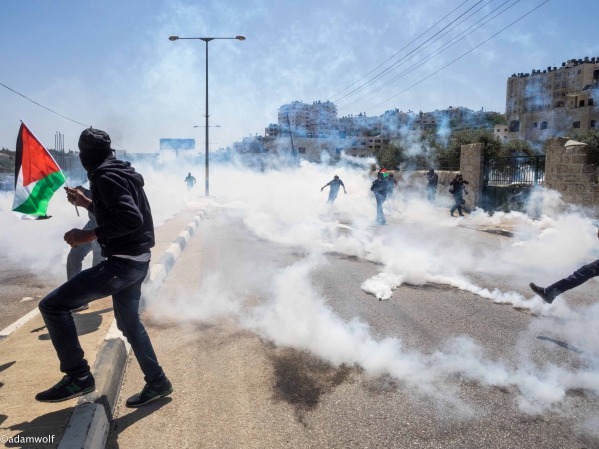Tag: Ofer military prison
-
Two more martyrs as the Nakba continues
16th May 2014 | International Women’s Peace Service | Occupied Palestine In commemoration of the 66th annual Nakba day, hundreds of Palestinian youth from the Ramallah district moved against Israeli soldiers outside of Ofer prison in Beitunya. Soldiers retaliated with tear gas, live ammunition and rubber coated steel bullets. During the clashes, soldiers killed two demonstraters, aged seventeen…
-
Eight activists injured by live ammunition in prisoner release protest outside Ofer prison
4th April 2014 | International Solidarity Movement | Ramallah, Occupied Palestine This afternoon approximately 500 Palestinian, international and Israeli demonstrators gathered close to Ofer Prison in Ramallah to protest against the refusal of the Israeli state to release the fourth group of Palestinian prisoners. As part of the current round of talks between Fatah (the…
-
Arrested at Nabi Saleh, Rana Nazzal speaks out for Palestinian political prisoners
4th July 2013 | International Solidarity Movement, Ramallah Team | Ramallah, Occupied Palestine On the 28th of June 2013 two Palestinian activists were arrested in the village of Nabi Saleh during the village’s Friday demonstration. Both are currently released on bail and have been charged with entering a close military zone. The prosecutor is asking…


